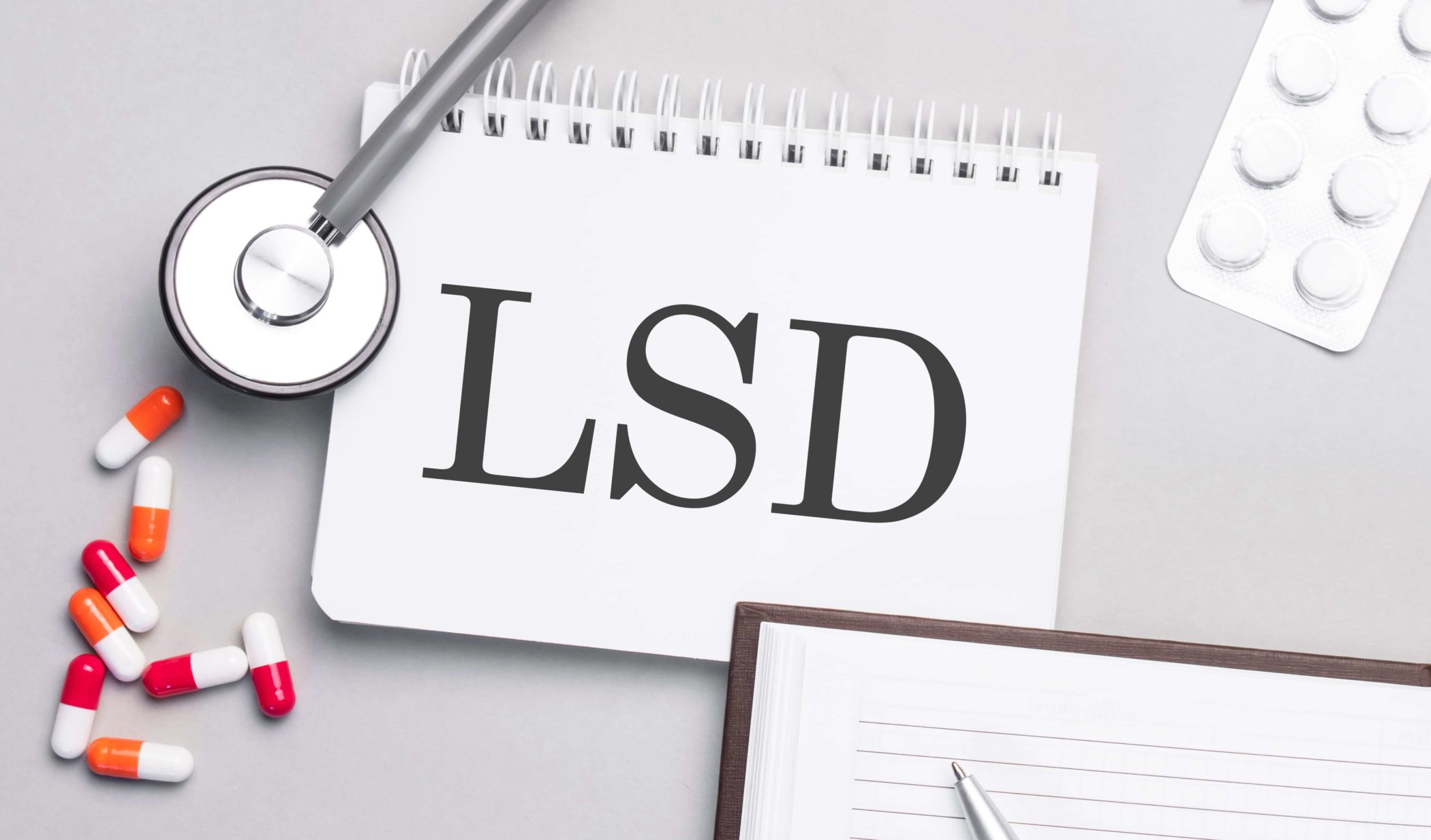LSD, lysergic acid diethylamide, is a psychedelic drug that alters the state of the mind in a number of ways. It has colorful street names — acid, blotter, California Sunshine, dots, Electric Kool-Aid, among others.
What Is LSD?
LSD is colorless, odorless, and tasteless — easy to take orally. It is extremely potent — 25 micrograms is enough of a dose for many and easy to conceal on tiny squares of absorbent paper called “blotters.” Thus, it is difficult to detect and is relatively cheap compared to other drugs. LSD was developed in 1938 by Swiss chemist Albert Hofmann while researching a poisonous fungus called ergot, which grows on rye grain or rye bread, and has poisoned countless people. Several useful medications were developed from the active ingredients in ergot, including drugs for blood pressure and improved brain function in the elderly. LSD was one of them and was initially used in psychiatric experiments. After decades of study, researchers are still uncertain as to the exact ways LSD affects the brain.
How Does LSD Affect The Brain?
LSD binds to specific brain cell receptors and alters how the brain responds to serotonin. Serotonin is the neurotransmitter that regulates emotion, mood, and perception and influences motor skills and body temperature. LSD also changes the brain’s blood flow and electrical activity, and the way the brain communicates. This alters the way the brain takes in and processes information from the outside world.
The LSD-modified neural pathways produce visual hallucinations and alter the perception of time and sound. The mind-altering effects, usually called “acid trips,” begin within 20 to 90 minutes of ingestion and can last up to 12 hours.
How Does LSD Affect The Body?
LSD’s primary effects are visual. Colors seem brighter, objects might appear to move, have halos of light around them, have trails of light coming from them, or appear distorted in size. Users often see patterns, shapes, or textures. Time may seem to move slowly or quickly. On occasion, users may experience synesthesia — “crossed” senses — sometimes described as “seeing” colors when hearing specific sounds. Feelings of happiness and euphoria are common. These “trips” are generally positive, but sometimes users experience traumatic or nightmarish “bad trips.”
LSD may also cause impulsiveness, rapid mood changes, an altered sense of self, or even mystical or religious experiences. Physical effects include increased blood pressure, heart rate and body temperature, sweating, numbness/weakness, blurred vision, dizziness, chills, dry mouth, nausea, and tremors. LSD has few long-lasting physical effects and does little damage directly.
Taking large doses of LSD can produce traumatic emotional reactions: intense anxiety or paranoia, rapid mood swings, and depressive episodes lasting several hours. Extreme agitation caused by LSD can lead to violent or risky behaviors, including panic attacks or attempts to flee from hallucinations. These may cause injury, accidental death, or suicide. The real physical dangers of LSD come from lost inhibitions, poor judgment, or skewed perception while using. LSD users have been killed by walking into traffic, falling from windows, or driving while high.
Many users experience flashbacks (recurrent effects of LSD felt many days or months after the last dose). Flashbacks are generally benign and are often accompanied by pleasant feelings. LSD does not appear to be physically addictive — users quickly develop a tolerance and require larger doses to get the same effects, but it is short-lived and goes away a few days after stopping LSD. It is possible to overdose on LSD. Overdose symptoms include violent or hazardous behavior, psychotic episodes, and seizures. There is evidence that LSD use can have detrimental long-term effects.
HPPD: A Potential Long-Term Effect Of LSD
Hallucinogen Persisting Perception Disorder (HPPD) has serious effects on heavy or frequent LSD users. Sufferers have repeated, spontaneous distortions in reality similar to those caused by the original LSD trip. They experience visual disturbances, flashes of color, halos, or false motions in peripheral vision for months or years after their last trip. Repeated HPPD “flashbacks” can be so intense and debilitating that many cannot adapt to living with them, and, in some cases, they need constant treatment to overcome the symptoms.
HPPD is more common in those who suffer from or have a family history of, anxiety, tinnitus (ringing in the ears), eye floaters, or concentration issues.
LSD and Psychiatric Disorders
LSD users are also at risk of developing long-lasting psychiatric disorders, including schizophrenia, mood disturbances, disorganized thinking, and paranoia. These psychological issues can linger for years.
Treatment For LSD Abuse and Addiction
Therapy is an effective treatment option for those who abuse LSD, helping them address the underlying causes of the substance abuse problems. Treatment plans for LSD abuse usually include regular participation in individual or group therapy sessions. Those suffering from LSD flashbacks or HPPD may be treated with medication to help control the visual disturbances caused by these conditions. HPPD medications may include benzodiazepines, antiepileptic/anti-seizure drugs, dopamine receptor antagonists, serotonin selective reuptake inhibitors (SSRIs), opioid receptor antagonists, calcium channel blockers, and beta blockers.
LSD is a powerful substance that can lead to some terrifying experiences. For those with mental health conditions or risk factors for psychosis, acid trips may lead to potentially distressing long-term psychological issues.
Why Choose Bridges Of Hope?
Bridges of Hope is a Joint Commission-accredited dual-diagnosis adult substance abuse treatment program. Our program is designed to achieve long-term recovery. We are licensed by the State of Indiana Department of Mental Health & Addiction.
Our treatment philosophy is based on a comprehensive and integrated approach to addressing all issues related to substance use and mental health disorders. We leave nothing to guesswork as we utilize therapeutically proven, evidence-based clinical practices. We place superior patient care as our highest priority and offer them all-inclusive treatment services.
Contact us today if you or someone you love lives with an addiction to LSD. We are ready and willing to help.


 Verify Insurance
Verify Insurance
 Toll Free Call
Toll Free Call